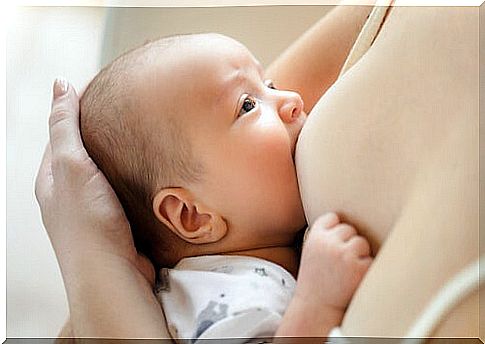Yes To Breastfeeding! Know All Your Benefits

The best food option on the planet is the one that begins with breastfeeding during the first hour of life, it is a scientifically proven fact. Exclusive breastfeeding for a full six months provides the baby with the necessary nutrients and antibodies for his age. Believe it, there is nothing better!
The human body is so wonderful that a mother can satisfy her baby’s hunger immediately by breastfeeding him. This is not just a practical advantage, as evidence has accumulated on the health benefits of breastfeeding over the past few decades.
What do the experts think?
Now, after corroborating hundreds of studies, the World Health Organization (WHO) can safely say that breastfeeding reduces infant mortality and has health benefits that extend into adulthood.
In fact, the WHO recommends exclusive breastfeeding for the first six months of life and thereafter its reinforcement with complementary foods at least up to two years. So do thousands of pediatricians in the world, moms and grandmothers. Science and experience are highly unlikely to be wrong.
For mothers to be able to practice exclusive breastfeeding for the first six months, WHO and UNICEF recommend:
- Start breastfeeding within the first hour of life.
- Practice exclusive breastfeeding, that is, provide the infant with only breast milk, without other food or drink, not even water.
- Breastfeed when the child demands it, either during the day or at night.
- Do not use bottles, nipples or pacifiers.

Benefits for both
Breastfeeding improves maternal health in the short and long term ; it can contribute to achieving the Millennium Development Goals to which many countries and agencies are committed, particularly those aimed at reducing child mortality and improving maternal health.
The advantages of breastfeeding are not only limited to numerical data and scientific evidence, it also has to do with love and pleasant moments between the mother and her baby, since breastfeeding requires that the mother dedicate some quiet and relaxed time to herself. herself and her child.
This time helps them bond. Physical contact is important for newborns because it helps them feel more secure, warm, and comforted.
Mothers who breastfeed can have greater self-confidence and feel closer and closer to their babies.
However, it is necessary to bear in mind that neither breastfeeding guarantees that the emotional relationship between mother and child will be adequate, nor does the lack of breastfeeding make it impossible.
But when breastfeeding is enjoyed by both, it is a very positive reinforcement element.

Specifically, breast milk prevents the baby from suffering:
- Ear infections
- Stomach viruses.
- Diarrhea.
- Respiratory infections.
- Atopic dermatitis.
- Asthma.
- Obesity.
- Diabetes.
Keep in mind that breastfeeding has been shown to positively influence the baby’s microbiota, which is a boost for the immune system.
The most important and most visible benefits of breastfeeding are the immediate health and survival of the infant. Rates of diarrhea, respiratory tract infections, otitis media, and other infections, as well as deaths from these diseases, are lower in breastfed children than in non-breastfed children.
-Pan American Health Organization-
Mom’s milk is enough
Breast milk differs from formula milk. Colostrum, the first thick, yellowish breast milk produced during pregnancy and immediately after delivery, will give your baby the best start in life.
Colostrum contains nutrients and antibodies that protect the baby when it comes into the world. The improvement of the immune system is capable of generating a lower propensity to pathologies related to hypersensitivity, according to a study published in Frontiers in Immunology.
For most babies, breast milk is easier to digest than formula. Babies’ stomachs take time to adapt to the digestion of proteins in formula milk, because they come from cow’s milk.
And don’t worry about the amount of milk, although the baby only receives a small amount of colostrum at each feeding, that amount is equal to what his small stomach can store. The stomach of a newborn is small.
One of the most common fears or concerns of mothers is the amount of milk the baby is taking, remember that his stomach is small and that he will take whatever is necessary to satisfy hunger.
Pediatricians around the world recommend that babies receive only breast milk for the first six months of life. This means not giving your baby any other solid or liquid food – not even water – during that time.
Not everything is pink
Supporting the mother is essential, says the WHO. Breastfeeding requires learning, and many women struggle at first. Pain in the nipple and fear that the milk is not enough to support the child are common.
Keep in mind that to promote it, there are health centers that support breastfeeding by putting qualified advisers at the disposal of mothers.
Thanks to an initiative by WHO and UNICEF, there are now more than 20,000 “ baby- friendly” centers in 152 countries that provide such support and help improve care for mothers and newborns.










